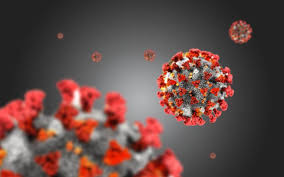Fauci's worst nightmare? I could barely get to sleep.
这只是福奇最糟的恶梦?我可是几乎无法入眠。
As this pandemic threatens the entire world, the fight against it has been a very public one. The average citizen is getting insight into scientific theorizing that is normally confined to academic conferences and slow-moving journals. Much of the debate over these ideas is taking place on television, as well as on Twitter, on Facebook, and in the backyard gatherings of lawn chair epidemiologists.
随着这场大流行威胁了整个世界,与它的抗战已完全成为了公众之事。科学理论通常仅出现在学术会议和出版进度缓慢的期刊上,现在一般公民也开始有所认识。许多相关争论开始出现在电视、推特、脸书上,还有坐在草坪躺椅上的流行病学家的后院聚会中。

We're seeing that now, as thousands of researchers have reoriented their labs, no matter how far afield from virology or infectious disease, to attack this hydra-headed problem collectively. There has never been anything like it, with scientists collaborating across borders at full throttle -- even as some of their political leaders snipe at one another.
数千名研究人员已经调整实验方向,不论他们的领域和病毒学或传染病有多么不相关,为的是共同制伏这个有多重威胁的病毒。从来没有像现在这样,科学家以全速进行跨国合作――即使他们某些人的政治领袖在相互攻讦。
Watching this ramped-up scientific effort has felt double-edged: encouraging to see but so hard to follow that it also added to my free-floating anxiety. So I did what I've done my whole adult life -- called up some scientists to see what they think. This is a wonderful benefit to being a journalist, being allowed to ask dumb questions of smart people. Usually it helps me clarify my own thinking. This time... not so much.
看到这种不断增强的科学努力,我有了一种双重感觉:我感觉令人鼓舞却又很难跟上,这也增加了我飘忽不定的焦虑。因此我做了我成年后一直在做的事情--我打电话给几位科学家,看看他们有什么想法。身为新闻工作者的一个天大好处,就是可以向聪明人问笨问题。通常这么做有助于我理清自己的想法。但这一次...效果有限。
来源:可可英语 //m.moreplr.com/Article/202012/621657.shtml












